Research
We fund research
Our investment in research is advancing our understanding of childhood cancer. We are developing our knowledge about why children develop cancer and we are gaining new insights into the genetic and environmental causes of cancer to see if prevention is possible. We hope to improve the diagnosis, treatment and long-term care of children with cancer.
Research we are funding
In 2025, we invested over £3,000,000 into 10 childhood cancer research projects across the UK.

RESEARCH
Research we fund
Research is integral to driving forward our vision of a world where every child survives cancer. Find out about the research projects we are funding to improve the outcomes of young cancer patients.

RESEARCH
Our research explained
We know that scientific research can be hard to understand. To help you learn about the research we fund we have created videos explaining how our research could help.
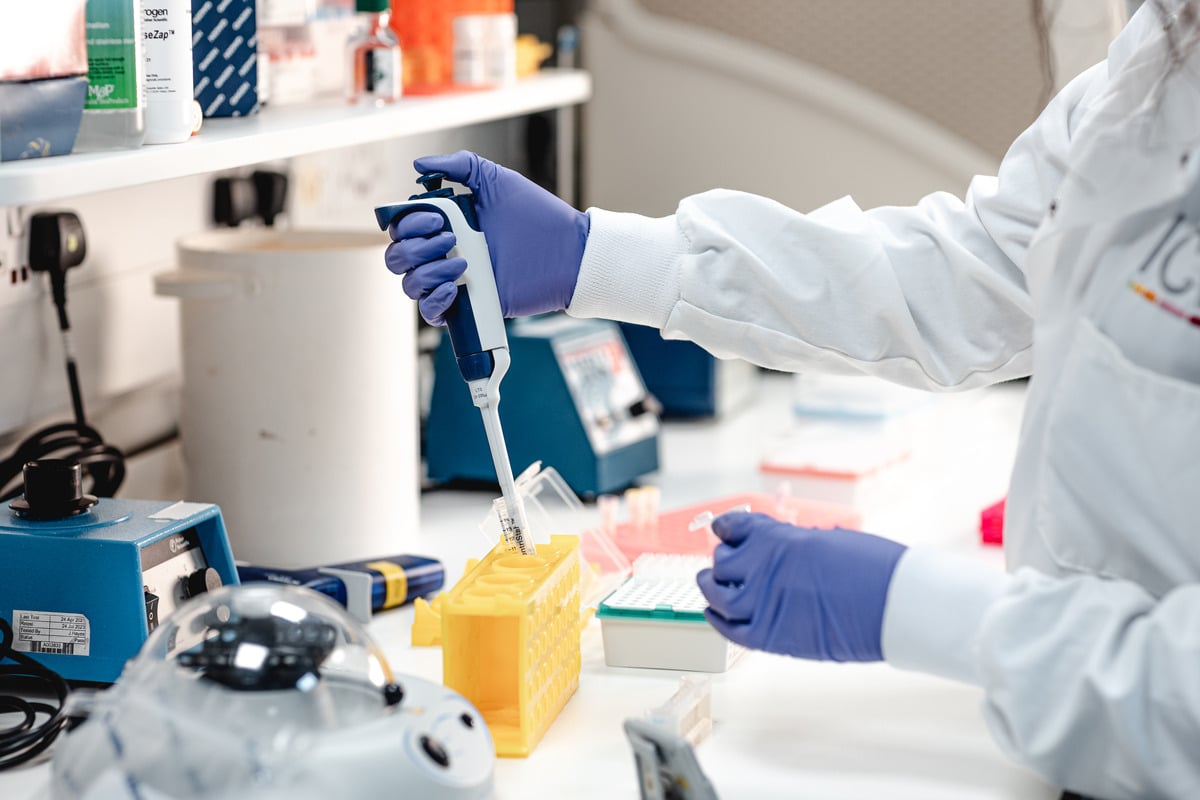
RESEARCH
For researchers
Discover what research Children with Cancer UK will support, including details of our research strategy, grant calls and application process.
Scientific Advisory Panel
The members of our Scientific Advisory Panel freely give their time and expertise to drive forward research through rigorous review of grant applications.
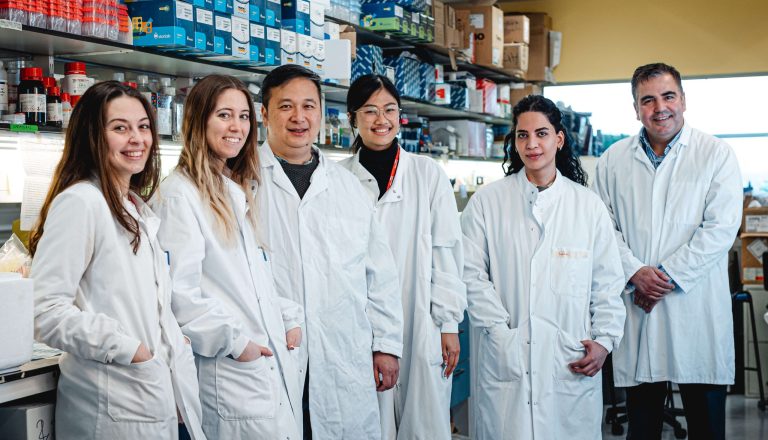
Frequently Asked Questions
Background
The incidence of childhood cancer increased through the second half of the 20th century and continues to increase today. Incredible progress has been made in treating childhood cancers but the pace of progress has now slowed and a substantial minority of patients are failed by therapy and do not survive. In addition, the tremendous gains in survival have been achieved through the use of increasingly intensive treatment regimens, putting young patients at risk of adverse, treatment-related effects.
Research aims
We want to understand more about why children develop cancer, to find explanations for the increase in risk and to establish whether prevention is a possibility
We want to drive forward the development of novel approaches to diagnosis, identification of markers of likely outcome and improved treatments for childhood cancer in order to tackle those forms which still elude successful treatment and to minimise the risk of adverse, treatment-related effects
We want to understand more about the long-term risks faced by childhood cancer survivors, of whom there are now more than 30,000 in the UK.
In the past five years, we have invested over £20 million on research into childhood cancer.
We primarily award grants to institutions such as universities, medical and scientific research centres, and hospitals. We also award some fellowships and individual further professional development training awards. Only researchers based at institutions in the UK can usually apply for funding. We fund research overseas only if it is part of an agreed collaborative effort. Part of the criteria for the award of a grant is that there is adequate infrastructure to support the proposed work.
Our research strategy sets out the key areas of research we have decided we need to focus on.
Grant applications are invited via our annual open funding call, details of our most recent funding call can be found here: https://www.childrenwithcancer.org.uk/funding-opportunities/2025-research-grant-call/
Children with Cancer UK is a member of the Association of Medical Research Charities (AMRC). The AMRC sets minimum standards of good practice to which member charities must adhere in their grant-making, including policies on peer review.
We keep in touch with grant-holders during the period of their grant to monitor their progress and keep track of findings.
Under our terms and conditions of funding, all grant-holders must provide annual reports on the progress of their project and a final report at the end of the grant.
We endeavour to visit each project at least once during the course of the grant – to meet the research team, inspect the research facilities and check on the progress of the work.
We place great importance on the dissemination of results, so that those working in the field can learn from other people’s research.
We closely monitor the progress of the projects we fund and encourage scientists to publish the results of their work where possible.
We provide additional funding for researchers to travel to conferences and meetings to present their work and discuss their findings.
We also host conferences and scientific workshops to bring together those engaged in childhood cancer research. In February 2016, we held a specialist workshop on drug delivery in childhood brain tumours; in September 2016 we are hosting our fourth international conference Childhood Cancer 2016, where a number of our grant-holders will present results from their research.
Children with Cancer UK is a member of the Association of Medical Research Charities (AMRC) and supports the AMRC’s position statement on using animals in research. We support the principle of using animals in research when it is necessary to advance understanding of health and disease and to develop new treatments; we want to find improved treatments that will cure even the hardest-to-treat forms of childhood cancer, causing minimal side effects for the child. This research follows strict animal welfare regulations and only takes place where there is no other alternative available. Research projects are only funded by us after rigorous ethical and scientific assessment and licencing by the Home Office. Children with Cancer UK has signed the Concordat on Openness on Animal Research in the UK, alongside over 120 other organisations. Together, we have committed to enhancing our communication about the use of animals in research. For our full Position Statement on animal research, please click the link below.
We have never funded any research using human embryos. We have funded some work involving human embryonic stem cells. References to the use of ‘stem cells’ in our research generally refer to blood stem cells rather than embryonic stem cells.
Stay in touch
Stay up to date with all our research news, exclusive stories, fundraising events and opportunities to support us.
"*" indicates required fields

Looking for early signs on brain MRIs that can predict whether young people with ependymoma will go on to experience cognitive problems
Looking for early signs on brain MRIs that can predict whether young people with ependymoma will go on to experience…
Read more Looking for early signs on brain MRIs that can predict whether young people with ependymoma will go on to experience cognitive problems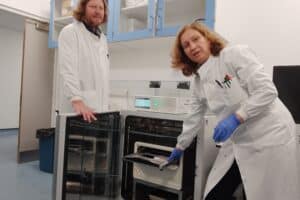
Blocking the activity of an essential protein to treat T-cell acute lymphoblastic leukaemia
Blocking the activity of an essential protein to treat T-cell acute lymphoblastic leukaemia Dr Maarten Hoogenkamp will continue his work…
Read more Blocking the activity of an essential protein to treat T-cell acute lymphoblastic leukaemiaDevelopment of natural killer cell immunotherapy for paediatric rhabdomyosarcoma
Development of natural killer cell immunotherapy for paediatric rhabdomyosarcoma Dr Matthew Blunt aims to create and test immunotherapy treatments for…
Read more Development of natural killer cell immunotherapy for paediatric rhabdomyosarcoma
Scientific Advisory Panel
Research Scientific Advisory Panel Our Scientific Advisory Panel freely give their time and expertise to drive forward childhood cancer research….
Read more Scientific Advisory Panel
Developing immunotherapy for childhood sarcomas.
Research Developing immunotherapy for childhood sarcomas. Some childhood cancers don’t respond well to chemotherapy, but there is hope in the…
Read more Developing immunotherapy for childhood sarcomas.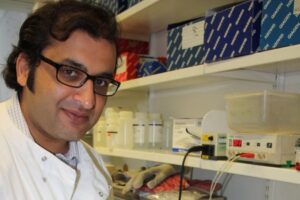
Childhood cancer immunotherapy using blood cells from umbilical cord blood.
Research Childhood cancer immunotherapy using blood cells from umbilical cord blood. Immunotherapy is an important new approach in the treatment…
Read more Childhood cancer immunotherapy using blood cells from umbilical cord blood.
Focusing on immunotherapy to target cancer cells without damaging healthy cells
Research Focusing on immunotherapy to target cancer cells without damaging healthy cells Developing new treatments for childhood cancers can be…
Read more Focusing on immunotherapy to target cancer cells without damaging healthy cells
Causes Cancers Blood
Finding out why some children get rare cancers of the blood. At the moment, we don’t know the cause of…
Read more Causes Cancers Blood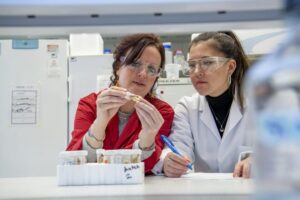
Our Research Strategy
Research Our Research Strategy We are dedicated to improving survival of all childhood (0 – 14 yrs old) and young…
Read more Our Research Strategy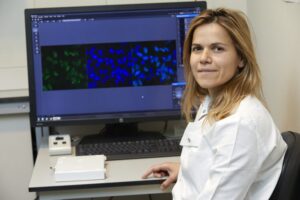
Managing your grant
Research Managing your Children with Cancer UK grant Find out how you can manage your Children with Cancer UK grant…
Read more Managing your grant